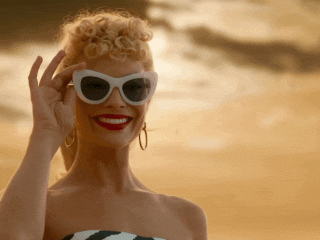After a chaotic week at Twitter, Musk arranged an interview with the BBC to discuss all that has been going on since he took over in October.
Firing, hiring, and justification were the main themes of Elon Musk’s live interview with the BBC last week. It was hastily put together after BBC reporter James Clayton emailed Musk to ask a question about Twitter adding a label to one of BBC’s accounts, claiming it was “government funded media.” After receiving a short response back from Musk himself – not the media team, like he was expecting – he asked Musk for an interview, not expecting much. To his surprise, Musk said yes, and the interview was set up at the Twitter headquarters later that night.
From the start of the interview, Clayton realised Musk was going to be open and communicative. He admitted that the reason he went through with buying Twitter was because a judge forced him to. They covered a slew of topics and the interview lasted for about an hour.
As a quick refresher, Elon Musk, founder of Tesla and the second richest man in the world, offered to buy Twitter last April for $44 billion. He tried to pull out, but Twitter sued and forced him to complete the deal in October. Since then, Musk has made many big changes to the company, starting with the number of people working at Twitter.
“The pain level has been extremely high, this hasn’t been some kind of party.” Musk said to Clayton in the interview when he asked if he had regrets about buying Twitter. He also said that it’s been “really quite a stressful situation over the last several months,” but feels as though buying Twitter was the right thing to do.
When he took over in October, he cut the staff from 8,000 to 1,500, emailing most of them that they had lost their jobs because, in his opinion, there was just not enough time to talk to that many people. “I wouldn’t say it was uncaring … if the whole ship sinks, then nobody’s got a job,” Musk told the BBC.
One of the main concerns for Twitter now, according to CNBC, is that there are only 550 full-time engineers left working for the company. A former Twitter engineer told CNBC back in January that “the remaining team will be spread thin, and will likely have a hard time maintaining the service while adding new features” – something that Musk has been incredibly adamant about since before he took over the company.
The main reason Clayton asked for the interview in the first place was Twitter adding a label to a BBC account saying that it was a “government funded media,” when the main way BBC is funded is through a licensing fee. Both National Public Radio (NPR) and the United States’ Public Broadcasting Service (PBS) have quit Twitter since the platform has labeled them as “state affiliated media” and “government funded media.” “‘We are officially de-emphasising Twitter across the organisation,” NPR said in a statement, adding that it had made the decision after Twitter refused repeated requests to remove the ‘inaccurate label’” (The Guardian). PBS put out a tweet to let its followers know.
As for how the company is doing under his watch financially, he said the company is roughly breaking even, “as most of its advertisers have returned.” It will be interesting to see how Twitter will do over the next couple of months, especially with the Twitter Blue Subscription now available to anyone for $8 a month and companies for $1000 a month. He believes that the company will be profitable, or “cash flow positive,” this quarter because “almost all advertisers have come back or said they are going to come back.”
Check out our latest social short here!
[Featured Image Creds: BBC News]






